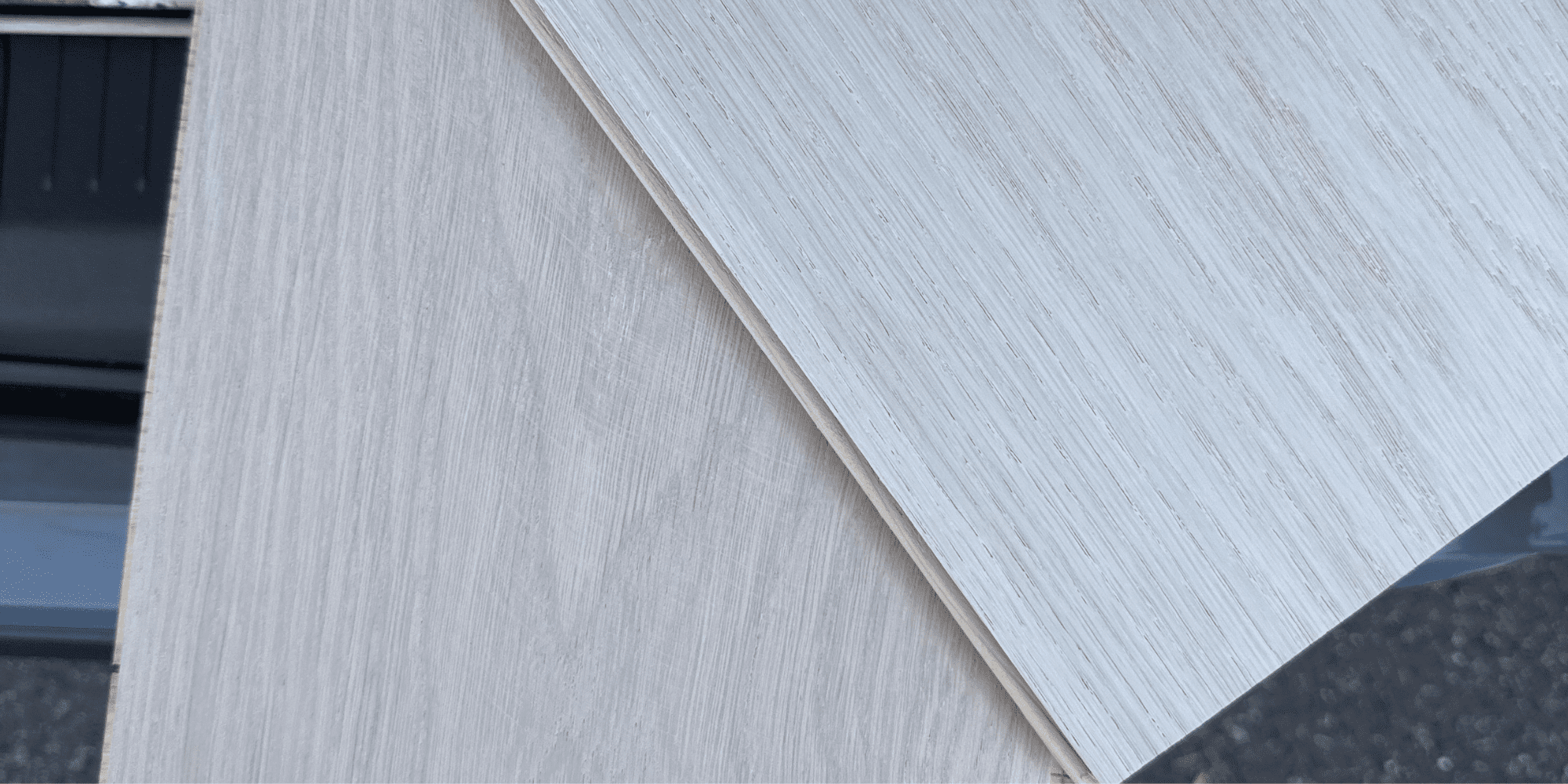Solid hardwood vs. engineered hardwood — it’s a question many Seattle-area homeowners ask us at LUKS Construction. Both options are beautiful and durable, but each comes with unique benefits depending on your space, subfloor, and long-term goals.
What Is Solid Hardwood?
Solid hardwood is made from a single piece of wood. It’s typically ¾-inch thick and known for its timeless look, incredible longevity, and ability to be refinished multiple times.
- Durability: Lasts 50–100 years with proper care
- Refinishing: Can be sanded and refinished 5–7 times
- Look: Deep, rich wood grain that develops character over time
- Best For: Living rooms, bedrooms, dining areas with stable humidity
Example: A Seattle homeowner had us restore original red oak flooring from the 1950s. After a dustless sanding and Swedish finish, the floor looked brand new — and still had years of life left in it.
What Is Engineered Hardwood?
Engineered hardwood has a real wood top layer, but its core is made from layers of plywood or HDF. This construction increases moisture resistance and stability, making it ideal for Seattle’s damp climate and modern home needs.
- Stability: Resists expansion and contraction from humidity
- Installation: Can be glued, nailed, or floated over various subfloors
- Refinishing: 1–3 times depending on wear layer thickness
- Best For: Basements, kitchens, condos, or radiant heat systems
Example: In Bellevue, we installed wide-plank engineered European oak over radiant heat. The result was a stable, luxurious floor that wouldn’t warp over time.
Side-by-Side Comparison
| Feature | Solid Hardwood | Engineered Hardwood |
|---|---|---|
| Material | One solid piece of wood | Real wood veneer + plywood core |
| Refinishing | 5–7 times | 1–3 times |
| Durability | 50–100 years | 20–40 years |
| Moisture Resistance | Low | High |
| Best Locations | Dry, upper-level rooms | Basements, concrete slabs, radiant heat |
| Cost | Higher upfront | More budget options |
Which One Is Right for You?
Choose Solid Hardwood If:
- You want a classic floor that can last generations
- Your home has consistent temperature and humidity
- You plan to refinish your floors over time
Choose Engineered Hardwood If:
- You need a moisture-resistant or basement-friendly option
- You’re installing over radiant heat or concrete
- You want a wide-plank or trendy prefinished style
Seattle Climate Considerations
Our region’s wet winters and dry summers can wreak havoc on floors. Solid hardwood will expand and contract unless installed and acclimated correctly. Engineered hardwood handles humidity shifts much better — ideal for Seattle, Bellevue, Issaquah, and surrounding areas.
Real Homeowner Stories
- Redmond: Solid hickory floors installed and finished with custom stain for a rustic-modern home
- Kirkland: Engineered white oak glued over concrete in a luxury condo renovation
- Issaquah: Heated engineered hardwood over slab in a finished basement remodel
Frequently Asked Questions
Can engineered hardwood look like solid wood?
Absolutely. High-quality engineered hardwood uses real wood on top, so once installed, it looks identical to solid wood.
Does engineered hardwood hurt resale value?
No. Both options are highly desirable. In fact, engineered wide-plank floors are a big trend in luxury homes.
Which one is more eco-friendly?
Engineered hardwood typically uses less solid wood and more sustainable manufacturing methods.
Can I use solid hardwood in a kitchen or basement?
It’s not recommended. Moisture can cause solid wood to warp or swell. Engineered is a safer choice in those areas.
Need Help Choosing the Right Floor?
Let LUKS Construction help you pick the perfect hardwood for your home in Seattle, Bellevue, Redmond, and beyond.
📞 Call 425-971-2895 or email luksconstruction@gmail.com





